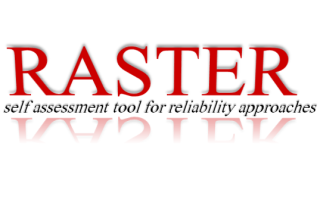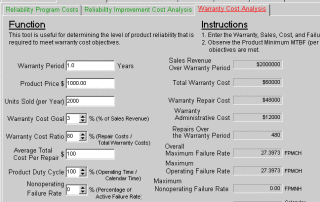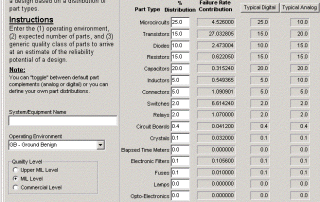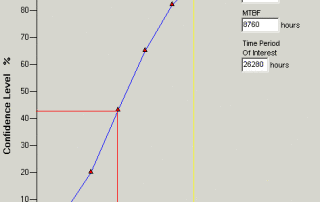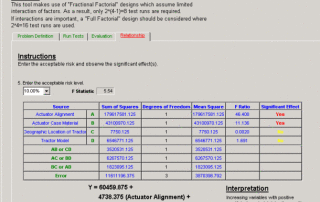An effective Reliability Program defines an optimum set of activities that will meet customer reliability needs and company objectives cost effectively. It includes realistic reliability requirements/goals, organizational responsibilities, holistic Design for Reliability (DFR) principles, and suitably tailored analysis, test and customer-support approaches.
Design for Reliability (DFR)
Course Description
Designing reliability into a system early in its life-cycle is the most effective means to ensure reliable performance and mission success. It is a well-known metric that the costs to fix a reliability issue for a fielded system is at least ten times more than it is to design the reliability in up-front. This… Read More
Reliability Self-Assessment Tool (RASTER)
Reliability is a discriminating characteristic of products in today’s marketplace, yet many companies are unsure about what is important in designing and manufacturing reliability. They sometimes lack the specialized expertise and/or experience to use their resources wisely in “making reliability happen.”
Over the years, RMQSI’s engineers have often been tasked to perform independent reviews (or audits) on… Read More
Lunchtime Learning Series
How Good Is Your Reliability Approach?
Product reliability is an important discriminator in today’s global marketplace but does your organization know how it’s doing compared to competitors in terms of designing and building reliability into its products? Could/should you be doing more “upfront” reliability activities to improve customer satisfaction, to reduce warranty costs, and to reduce in-plant rework costs? Do you… Read More
Reliability: Costly, or Cost Effective?
There are those who would argue that the costs of reliability activities associated with developing new products have little payoff. Whether we’re talking about commercial products or military systems, we don’t agree. Concepts like Life Cycle Costs, Total Ownership Costs, Reliability-based Maintenance, Performance-Based Logistics, and others clearly recognize the contribution of reliability activities in reducing… Read More
How Much Reliability is Enough?
Reliability is defined as performance of a function over time, whether it applies to a commercial product or a military system. Commercial product reliability is usually driven by such factors as warranty cost goals, competitive marketing strategies, and liability concerns while the military wants to meet the operational needs of users while also meeting support… Read More


